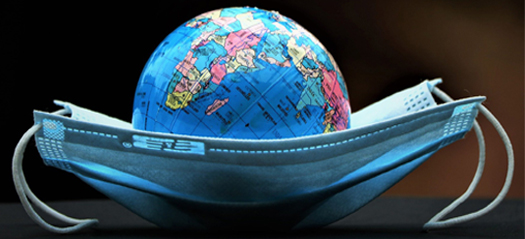
(Photo credit: Jeyaratnam Caniceus/Pixabay)
Dr Muhammad Abdul Bari
Since the outbreak of the Coronavirus pandemic from early 2020, the world has seen an unparalleled rise in infections and deaths. The remarks from the Director-general of the World Health Organisation (WHO) in late October could not be starker, “We are at a critical juncture in this pandemic… The next few months are going to be very tough, and some countries are on a dangerous track. We urge leaders to take immediate action, to prevent further unnecessary deaths…and essential health services from collapsing.”
The pandemic has created unparalleled public health and economic crisis with uncertainty across the globe. Whilst some economically developed countries with better-equipped health services have been able to respond to some difficulties faced through government intervention, others are facing national emergencies.
The virus may not discriminate but in reality, it is the poor including those living within developed countries, who are suffering most. The pandemic has laid bare the cavalier attitude and narrow view held by many of our political leaders. Even in these testing times, when ordinary citizens, for the most part, are helping one another, the politics of nationalistic, racial or religious prejudice has continued unabated in many parts of the world.
How have powerful countries handled the pandemic?
Four countries, in my opinion, have become a source of disappointment and pessimism for the world.
The world’s largest economy, the US is an example of the failure to protect its citizens. Political division and racial tensions have worsened during the period. Instead of lending its support to less fortunate countries and supporting the WHO to cope effectively with the crisis, the US has become more inward-looking. In the middle of the pandemic, it formally notified to withdraw from the WHO inviting widespread criticism as this was seen as an abdication of its political and moral leadership in the world.
While figures suggest that China, the world’s second-largest economy has contained the virus, the persecution of the minority Uyghur Muslims in Xinjiang has continued unrestricted and in full swing. Over a million Uyghurs have been thrown into internment camps. Many describe this as no less than cultural and religious genocide.
The third is India, the world’s largest democracy. Since 2014, when a Hindu nationalist political party closely linked with a paramilitary Hindutva body that once praised European fascism in the 1930s came to power, Indian Muslims have been subject to hatred and ostracism.
Despite making up over 15% of the population, they suddenly found themselves treated as second class citizens with discrimination and attacks rife. The situation has only worsened during the pandemic when the Indian administration accused a Muslim apolitical religious group of spreading the virus.
The last is a European country with a brutal colonial history that upholds a militant form of secularism when it comes to religion, particularly Islam.
France has been struggling with tackling the pandemic. Its post-war culture of denying its Muslim population the right to exercise their religious beliefs is on the rise. As the vilification of Prophet Muhammad (PBUH) continues with state endorsement, the tension between the state and its Muslim community is palpable.
When a tiny number of criminals from amongst the estimated 6 million Muslims commit heinous crimes, which French Muslim denounces unconditionally, the French establishment is quick to jump on Islam and all its followers rather than sensibly addressing the underlying causes with political insight. Unhelpfully, the French President recently declared that Islam is in crisis and thus needs a reformation. Critics say his attack on Islam is for politics of pandering to the right.
We swim or sink together as humans
Covid-19 has now become part of our life, and it looks to remain as such for the long haul. The virus has created a health crisis for many, particularly the elderly and those with underlying health conditions, but alarmingly it has also impacted seemingly young and healthy individuals.
Unlike many pandemics of before, it has touched every corner of the world due to this era of globalisation and increasing human interaction. Our world can no longer pin its hopes on the shoulders of powerful political leaders who have little moral authority or willingness to unify people. On the other hand, many of them seek to divide people based on race, religion or culture.
Conversely, it is ordinary people who are coming forward and working with others in societies to help those less well-off. In the UK, we see an upsurge of empathy for fellow Britons who struggle to make ends meet and feed their children due to poverty. Amid the Government’s intransigence against helping feed children during the school holidays, the footballer Marcus Rashford’s campaign struck a chord with the public and brought people together for a compassionate objective.
Human beings are ‘stewards of God earth’ (al-Qurʼān, 2:30) given ‘dignity (al-Qurʼān, 17:70)’ and ‘created with diversity (al-Qurʼān, 49:13)’. Conscientious Muslims have an unconditional moral duty to rise above any forms of bigotry and do their best to work for the common good of all, irrespective of backgrounds. What the world desperately needs is servant leaders in the model of the Prophets, amongst whom Prophet Muhammad was sent as a ‘mercy to the worlds (al-Qurʼān, 21:107)’.
Dr Muhammad Abdul Bari,
Educationalist, parenting consultant and author on family, identity/civic activism.
His memoirs, A Long Jihad: My Quest for the Middle Way is available on Amazon.